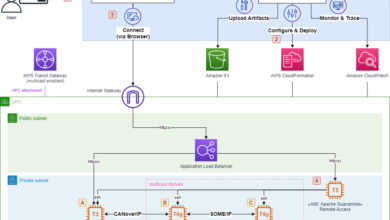Why we need both cloud engineers and cloud architects

Are you a cloud architect, engineer, or neither? The question will get you more blank stares than good explanations due to the confusion around two roles that perform separate but equally important duties.
I’ve held both roles. I was a software engineer early in my career, then morphed into an architect, then an executive architect. The trouble is that we tend to conflate both roles these days. The lines between engineering and architecture have blurred. We’re obtaining engineering certifications that say “architect” and architecture certifications that say “engineer.” The former is the most common, leading to considerable confusion.
First, I don’t care if you mislabel something, but I will correct you if you do. The confusion I’m seeing is leading to hiring mistakes and misunderstanding of what skills to apply where.
Cloud engineer
A cloud engineer is fundamentally involved in the hands-on aspects of cloud computing, such as the design, development, and maintenance of cloud systems. They are tasked with implementing cloud-based applications, including coding, ensuring scalability, and managing the technical health of the cloud platform.
Cloud engineers collaborate extensively with software developers and maybe do some ad hoc development. I would, however, not go so far as calling them developers since they do have other duties that are just as important and don’t require coding.
What’s critical to being a cloud engineer is being “hands-on” in dealing with the complexities of cloud systems, databases, AI, governance, and security. In many cases, there are special engineering disciplines around these subtechnologies, and certainly certifications that address specifics, such as certified cloud database engineer.
Cloud architect
On the other hand, a cloud architect plays a strategic role in orchestrating the cloud computing strategy of an organization. They are responsible for designing the overarching cloud environment and ensuring its alignment with business objectives. They are not typically hands-on. They may have specializations as well, such as cloud database architect or cloud security architect.
Cloud architects assess business and application requirements to craft scalable cloud solutions using the right mix of technologies. This can entail both cloud and non-cloud platforms. The idea is to focus on the blueprint and infrastructure of cloud systems rather than the granular coding and development tasks.
The focus on strategy is what’s important. A cloud architect is responsible for seeing the business purpose of the systems being built and assembling the correct technology configuration to return the maximum value back to the business.
Educational pathways and certifications
Although both roles demand a solid foundational knowledge of cloud computing, their educational and certification pathways reflect their individual domains. Cloud engineers often pursue degrees in computer science, engineering, or information technology, enhanced with certifications such as Google’s Associate Cloud Engineer credential.
Many engineers self-learn organically through online courses. This is quickly becoming the most common way to become a cloud engineer, and it does not compromise on skills and talent. Indeed, college degrees are often not needed these days, which is also a good trend.
Conversely, cloud architects may seek advanced degrees emphasizing cloud computing design, architecture, and business management. Their certification trajectory often includes specialized credentials like the Professional Cloud Architect from Google.
I’m not seeing hard-and-fast requirements that cloud architects have these types of certifications. Indeed, if someone comes to me applying for an architect role and only has AWS certifications—or any specific cloud provider for that matter—I’m inclined not to hire them out of concern that a certification would translate into bias that would corrupt the technology selection process.
The cloud architecture role is also often filled by self-taught candidates. Furthermore, for many positions, a college degree is optional. There are enough online courses out there to give you more current and valuable skills than many colleges can provide. That’s just the fact of the matter. I say this as someone who teaches online as well as at universities.
Organizational role and salary potential
I’m sure many are asking the core questions about paychecks and org charts. Let’s dig into that. In the organizational hierarchy, cloud architects often assume a more senior role, guiding cloud strategies and making decisions that affect the entire organization. Sometimes bad decisions can kill a business. Their work directly impacts business outcomes; thus, they usually command higher salaries than cloud engineers. If you want to make more money and boss people around, become an architect rather than an engineer.
Both roles offer lucrative opportunities, with salaries influenced by geographic location, experience, and the employer’s specific demands. In some cases, the engineers may earn more than the architect, given market dynamics at the time of hiring.
Cloud engineers and architects are indispensable in leveraging cloud computing to drive innovation. Cloud engineers are the builders and maintainers of cloud environments, and cloud architects are the visionaries who design the framework within those environments. They have a symbiotic relationship. I expect that both of these roles will evolve a great deal in the next few years, as AI becomes a driving force, and businesses understand the value of cloud-based technology solutions.
Copyright © 2024 IDG Communications, Inc.



